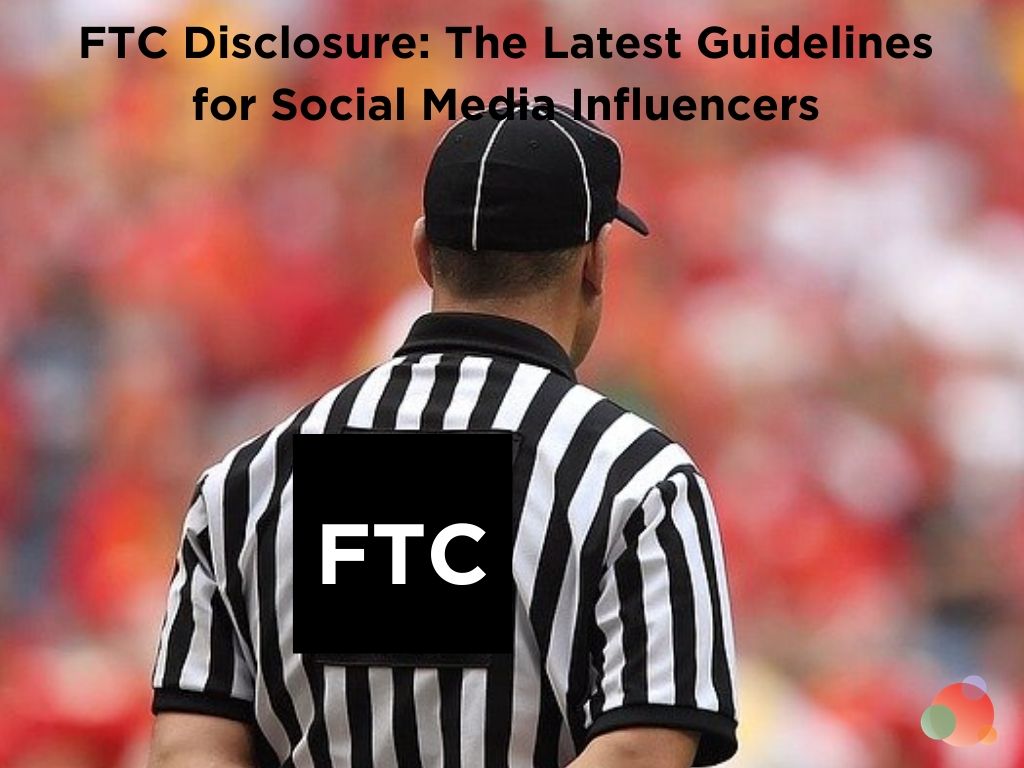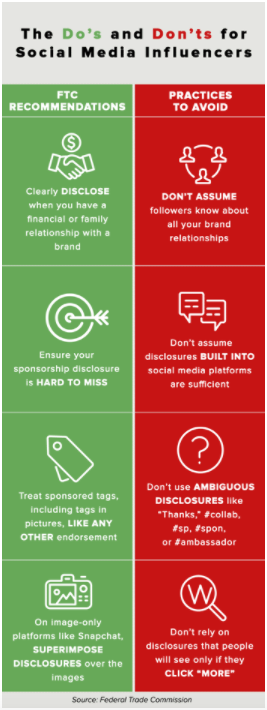 On Friday, we discussed ethical dilemmas communicators most frequently face. And upfront and center of those are disclosure issues.
On Friday, we discussed ethical dilemmas communicators most frequently face. And upfront and center of those are disclosure issues.
While influencer relations is only one of the areas where communicators must be vigilant around disclosure issues, it’s one of the biggest.
And one that’s not often self-checked by lawyers and legal teams. This means proper disclosure rules are sometimes ignored or not even truly understood.
The most important thing to understand is this: if your understanding or “version” of proper disclosure is not the same as the FTC’s view of proper disclosure, you are liable.
If you work in-house, you and your organization are liable.
If you are at an agency, you and your client(s) are liable.
You’re liable as the party responsible for communications and influencers.
You need to make sure disclosure rules are enforced.
Period.
FTC Disclosure #Influencer101
At the end of last year (November), the FTC distributed a new guidebook for influencers and an entire assortment of materials and videos to help make sure the growing community of influencers disclose properly. They are very easy to use and understandable.
I’m going to translate that for you: the FTC gave you super user friendly resources so when they come to crack down on people not following proper disclosure guidelines, those people can’t use the excuse that they didn’t know or understand.
All of this is part of a concentrated educational effort to show marketers and influencers the FTC is serious about enforcement and “not knowing” is not an acceptable excuse.
So know. And follow.
I’m going to go through some of the most frequently asked questions and areas of confusion for both communicators and influencers.
Please remember: this should not be used instead of reading the actual guidelines.
This is just a primer to help you make sure you are on the right path to disclosure nirvana.
How Do I Disclose?
The biggest question about FTC endorsement guidelines for social media is how to disclose and what the FTC disclosure and social media guidelines are for each platform.
For text-based ads, the use of #ad, #advertisement, #sponsored, or #BRANDNAMEpartner are all OK to use.
It is extremely important that whatever you use is easily noticeable and preferably at the beginning of the update.
You can’t do a laundry list of hashtags and slip your disclosure one somewhere in the mix. If the disclosure hashtag is easily missed or skipped over, it’s not acceptable.
Instead of a text-based disclosure, you can also use an image-based disclosure.
The disclosure must be superimposed on the image or video, extremely clear, stand out in a way that followers can’t avoid it.
Again, it must be easy to understand.
Additionally, image-based disclosures must be positioned so they can be seen before the ad.
Stories and Live Disclosure
FTC disclosure for Instagram Stories and Snapchat are a tad bit trickier.
You must superimpose the disclosure over the image.
It also must be easily noticed and read in the amount of time someone has to view it.
Disclosure only needs to be on the first post, if you have a series of posts on a product.
This is only true if the posts will all be seen together.
In live videos, you must continue to pop up the disclosure throughout the entire live experience.
Once is not enough.
Do it frequently enough that people popping in and out will see the disclosure at least once.
I’ve maybe seen one percent of influencers properly disclose on Instagram stories.
A lot of improvement is needed here.
What Do I Need to Disclose When?
When is FTC disclosure necessary?
The short, unofficial answer is ALL THE TIMESSSSSSS!
The more detailed answers are as follows:
I work for a brand, but they didn’t pay me for this post
If you post about a brand you work for, you must disclose your relationship.
As an employee, you are an influencer by default.
What you say about them will affect your followers, whether they pay you specifically for that mention or not.
(Learn more about employee brand ambassadors <– here.)
I’m a spokesperson for a brand, do I need to disclose?
Even if you are a well-known spokesperson for a brand you still need to disclose.
The official FTC disclosure rule is if the majority of your followers know of your relationship, then you don’t need to.
Unfortunately, that is VERY difficult to prove.
If you feel ready to get all of your followers up on the stand and ask them one by one if they know of your affiliations then go ahead… don’t disclose.
If you’d rather not deal with that, just disclose and be safe.
Plus, the likelihood you overestimate the number of people who are aware of your affiliation with a brand is high.
I’m a U.S. influencer traveling abroad for a brand. What FTC disclosure laws do I need to follow?
In international situations, always think about what audience your posts influence.
If you influence a U.S. audience, you need to follow U.S. laws.
You most likely will also need to comply with foreign laws.
Likewise, if a non-U..S influencer has influence over U.S. consumers or posts about a product available to U.S. consumers, they also must follow FTC disclosure rules.
You can run, you can hide, but you can’t kick the FTC, no matter where you are in the world.
A brand gave me a ticket to an event. I want to post about it from my personal point-of-view, do I need to disclose?
If what you want to post has anything to do with the brand or might influence someone about the brand in any way, disclose.
If it’s just about how much your cat might like the music, how offensive the plaid pants of the usher are, or something else totally non-brand related, you don’t have to.
Use your critical thinking skills here.
If I host giveaways, funded by third parties, do I need to disclose?
Yes.
You need to tell your followers the giveaway is hosted by a third party.
If they think the giveaway is funded by the influencer or the influencer isn’t getting anything for him/herself then you haven’t properly disclosed.
Don’t assume it’s clear the giveaway is brand-sponsored just because the giveaway includes products from the brand.
Influencer rule: don’t assume anything when it comes to FTC disclosure.
Life rule: don’t assume anything. Ever.
What About Built-in Disclosures?
Built-in disclosures (such as “this includes paid promotion” on YouTube or “paid” tag on Facebook) are NOT SUFFICIENT.
For a built-in disclosure to be acceptable, it has to be clear and conspicuous for the audience.
The FTC DOES NOT think the built-in YouTube, Instagram, or Facebook tools do this.
What Can I Do to Ease My Anxiety?
- Review the graphic below.
- Follow the FTC on Twitter.
- Attend future chats
- Read the FTC blog and posted guidelines
- Use your brain and critical thinking skils.
If you have other questions the FTC is willing to give informal guidance.
They ask that influencers and marketers emailed them at [email protected].
What questions do you have?
The comments are yours.
AND!
If you’re not already planning to join us for the PESO Model 2.0 masterclass on Wednesday, get your booty over there and register now.
Image by Keith Johnston from Pixabay
